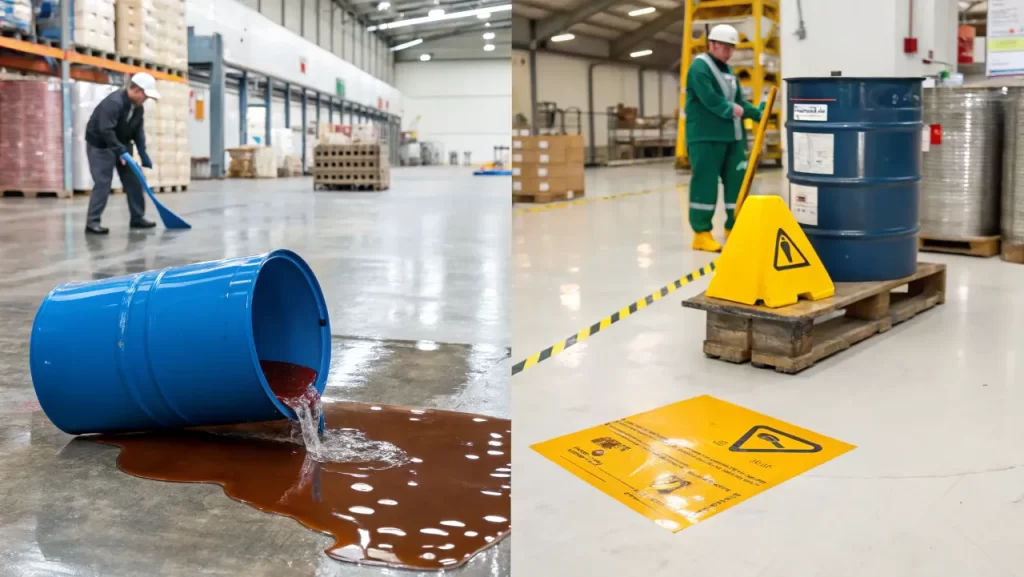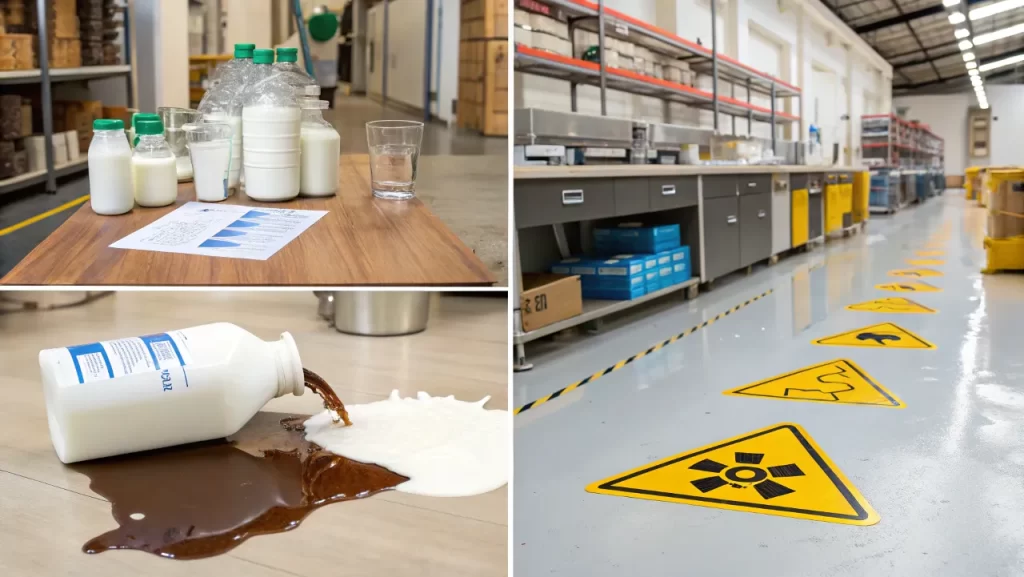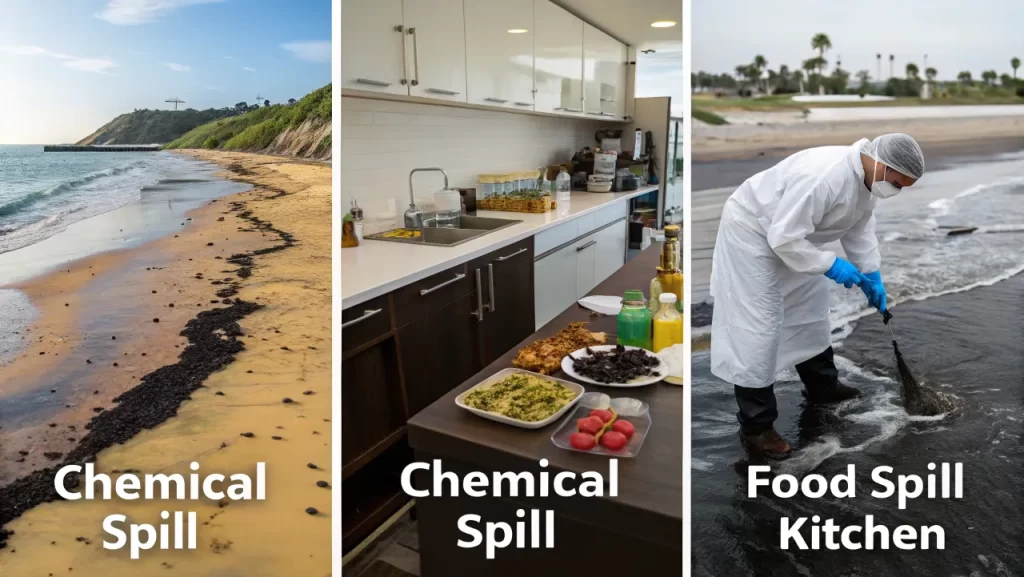Table of Contents
what does real spill mean?, is a term that applies in several fields, and its meaning can differ depending on the context. While the general concept refers to the act of spilling something, there are more specific interpretations in areas such as cybersecurity, industrial manufacturing, and even day-to-day situations. Understanding what spillage truly entails can help clarify the various ways this term is used and why it is significant.
General Definition of Spillage
In the most basic sense, spillage refers to the act or process of spilling something, typically a liquid, substance, or material. It can also refer to the quantity of material that has spilled. For example, a coffee spillage could simply mean the coffee that was accidentally spilled on the table, or an oil spillage could refer to the large-scale release of oil into the environment.
Though the term is most commonly associated with liquids, spillage can also refer to any form of material loss. In the context of environmental incidents, like an oil spill in the ocean, it involves a large quantity of substance that has been released, causing harm to the ecosystem.
Spillage in Cybersecurity: Unauthorized Information Release

One of the more critical applications of what does real spill mean? happens in the field of cybersecurity. Here, spillage refers to the unauthorized or accidental disclosure of sensitive information from a secure environment to an unapproved or lower-security location. This type of spillage can be inadvertent, such as a human error or intentional, stemming from malicious activity like espionage.
For instance, in a corporate setting, an employee may mistakenly email a confidential report to the wrong recipient. In a more severe case, hackers may exploit system vulnerabilities to access and leak sensitive company data.
This can result in significant consequences, including financial loss, legal repercussions, and damage to the organization’s reputation. Similarly, understanding critical details—whether it’s cybersecurity risks or the 2024 zx6r out the door price can make all the difference when making informed decisions.
Causes of Cybersecurity Spillage
Spillage in the cybersecurity realm is often caused by human error, such as:
- Sending sensitive data to the wrong email address
- Incorrectly configuring file permissions on cloud storage, making files publicly accessible
- Losing a device containing unencrypted sensitive data
However, malicious actors can also exploit spillage for nefarious purposes, such as stealing trade secrets, intellectual property, or personal data. Accidental spillage accounts for most cases, but the results can still be severe.
The Impact of Spillage in Cybersecurity
The impact of data spillage can be far-reaching. It may lead to:
- Financial losses: Companies may face fines, legal fees, and costs related to incident response.
- Reputation damage: Customer trust can be eroded, especially if personal information is involved.
- Legal implications: Organizations may violate data protection regulations like GDPR or HIPAA, leading to penalties.
- Operational disruption: Companies may need to halt operations to investigate and contain the incident.
Given the potential consequences, it’s crucial to have preventative measures in place to avoid spillage in the first place. These include employing Data Loss Prevention (DLP) tools, educating employees about data security, What is True About Spillage and maintaining robust security protocols.
Spillage in Manufacturing and Production

Spillage is not limited to cybersecurity. In industrial and manufacturing contexts, it often refers to the loss of production output due to defects in the manufacturing process. When a failure in the system goes unnoticed, it can lead to the continuous production of defective products, what does real spill mean?
For example, a factory producing beverages may experience a spillage of materials if a machine malfunctions, leading to faulty production. This type of spillage results in both financial losses and wasted resources, as products that don’t meet quality standards must be disposed of, and production time is lost.
Everyday Spillage: From Accidental Messes to Environmental Disasters
In everyday life, what does real spill mean? is often associated with minor accidents, like spilling a drink or knocking over a container. These small-scale incidents can be bothersome but are typically easily remedied.
However, the term also applies to larger-scale environmental disasters. For instance, an oil spill in an ocean or river is a form of spillage that causes widespread ecological damage. These incidents often involve significant clean-up efforts and can have long-lasting environmental and economic effects.
Also Read: The Ultimate Guide to the Grabagun Giveaway: How You Can Win Big
The Role of Spillage in Environmental Concerns
When spillage occurs in an industrial or environmental context, it can lead to the contamination of natural resources. For example, a chemical spill in a river can harm wildlife and disrupt local ecosystems. The cleanup efforts can be expensive and time-consuming, and the consequences for the environment may persist long after the incident.
For example, an oil tanker may leak oil into the sea, affecting marine life and local industries such as fishing and tourism. These spills often require coordinated international efforts to mitigate the impact.
what does real spill mean in the Legal Context
what does real spill mean?, In legal terms, spillage can also refer to the unauthorized disclosure of confidential information, which may breach contractual agreements, especially in cases involving trade secrets or intellectual property. This can lead to legal actions and financial penalties.
For instance, if a company’s proprietary data is leaked to a competitor, the affected party may pursue legal action to recover damages. This is particularly true for sensitive sectors like technology or pharmaceuticals, where intellectual property is a key asset.
How to Prevent Spillage

what does real spill mean?, Prevention of spillage, particularly in cybersecurity, involves a combination of technological safeguards and employee awareness. Companies can adopt measures such as:
- Implementing encryption for sensitive data
- Using secure communication channels for sharing information
- Regularly updating software to fix vulnerabilities
- Conducting training sessions on data security for employees
In industrial settings, it’s important to maintain high standards of quality control and regularly inspect equipment to prevent spillage caused by machinery failure. In environmental cases, strict regulations and safety procedures are put in place to minimize risks.
Spillage and Its Varied Implications
what does real spill mean is a term that can have different meanings depending on the context in which it is used. Whether referring to a small liquid accident or a cybersecurity breach, spillage has significant implications for businesses and individuals alike. By understanding the various causes and consequences of spillage, organizations can better prepare and respond to these incidents.
In cybersecurity, spillage can lead to serious data leaks that threaten privacy and security, while in manufacturing, it can result in the loss of valuable products. Preventing and addressing spillage in all its forms requires careful planning, the right tools, and ongoing education to ensure that sensitive data and resources are handled properly.
By staying informed and proactive, businesses can minimize the risks associated with spillage and ensure a safer, more efficient operational environment.
FAQs
What is spillage in cybersecurity?
Spillage in cybersecurity refers to the unauthorized or accidental release of sensitive or classified data from a secure system to an unapproved location.
How does spillage occur in manufacturing?
In manufacturing, spillage occurs when defective products are produced due to system malfunctions or process errors, resulting in waste and lost production.
What are the consequences of spillage?
Consequences of spillage can include financial losses, legal penalties, reputational damage, and operational disruption, depending on the severity and context.
How can spillage be prevented?
Spillage can be prevented through robust security measures, such as encryption, regular system updates, employee training, and maintaining quality control in manufacturing processes.

